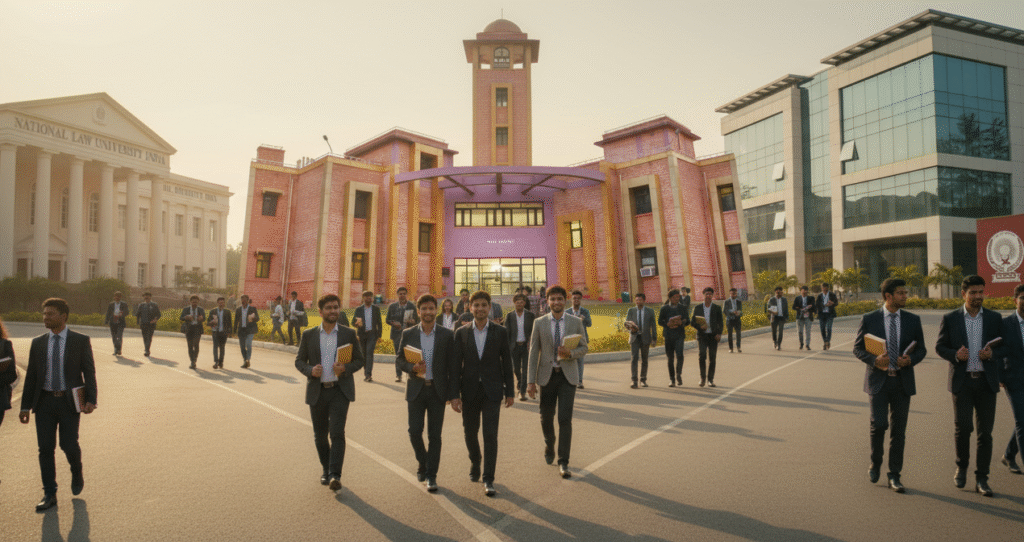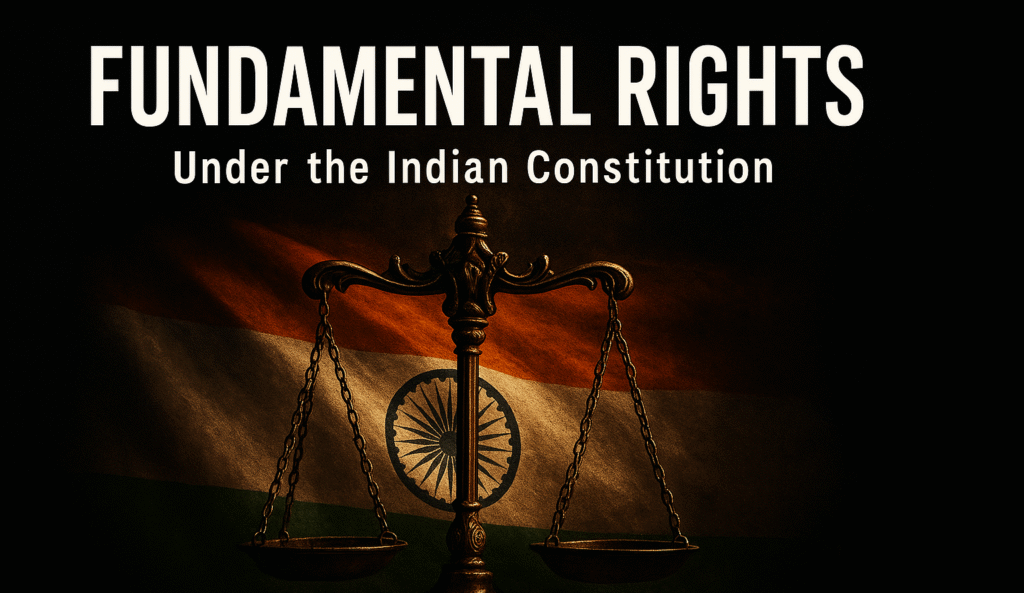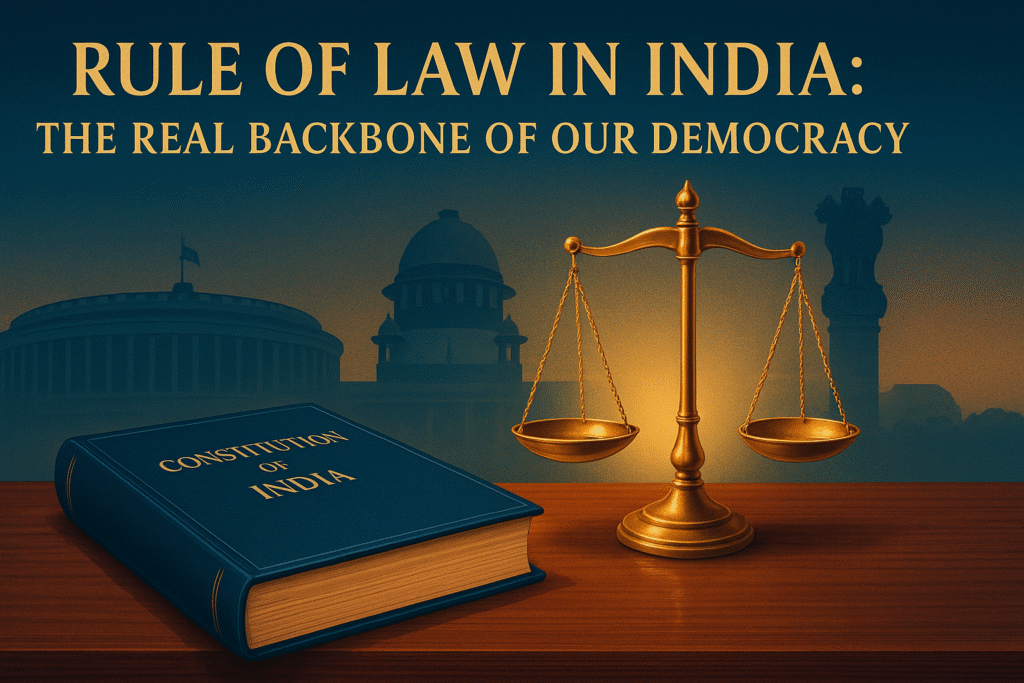You’re exploring for India’s Top law colleges or NLUs
Imagine this: you’re standing at the crossroads of your future. You’ve cleared your Class 12 exams, your parents are proud, and you’ve finally decided—law is your passion. But as you start researching, hundreds of colleges pop up on Google, each claiming to be the best. You ask yourself — Which one will truly shape my legal career?
Don’t worry — you’re not alone! Every aspiring lawyer in India faces this question. Whether you dream of becoming a Supreme Court advocate, a corporate lawyer at a top firm, or a future judge, your journey begins with the right law college.
In this guide, we’ve compiled the Top 10 Law Colleges in India — not just based on rank, but on academic excellence, placements, campus life, and overall reputation. Let’s explore where your dream legal career can truly begin!
Table of Contents
ToggleWhy Choosing the Right Law College Matters
Choosing a law college isn’t just about a degree — it’s about building your foundation in justice, logic, and leadership.
Here’s why it’s so crucial:




1. National Law School of India University (NLSIU), Bengaluru
Established: 1987
Degrees Offered: BA LL.B, LL.M, MPP, Ph.D.
When you talk about the best law colleges in India, NLSIU Bengaluru is always at the top. India’s first National Law University (NLU), it has produced many of the country’s leading advocates, scholars, and policymakers.
Why NLSIU?
Pioneered the 5-year integrated BA LL.B program.
Outstanding placement records with top law firms like AZB & Partners, Trilegal, and Cyril Amarchand Mangaldas.
A vibrant campus life filled with debates, moots, and legal research.

2. National Academy of Legal Studies and Research (NALSAR), Hyderabad
Established: 1998
Degrees Offered: BA LL.B, LL.M, MBA, Ph.D.
Ranked among the top NLUs in India, NALSAR is known for its academic rigor and strong alumni network. Its campus promotes an atmosphere of intellectual curiosity and social responsibility.
Highlights:
Students regularly win international moot court competitions.
Excellent internships with corporate giants and NGOs.
Known for its inclusive campus culture and student diversity.

3. National Law University (NLU), Delhi
Established: 2008
Degrees Offered: BA LL.B (Hons.), LL.M, Ph.D.
NLU Delhi quickly rose to prominence and is now considered one of the best law colleges in India. It’s also known for its independent entrance exam, AILET, instead of CLAT.
Why NLU Delhi?
Faculty includes some of India’s top legal minds.
Excellent research centers focusing on constitutional law, human rights, and criminal justice.
Consistent top-tier placements and internships in the judiciary and corporate sectors.
4. National Law University (NLU), Jodhpur
Established: 1999
Degrees Offered: BA LL.B, BBA LL.B, LL.M, MBA
NLU Jodhpur stands tall among the top law colleges in India with its emphasis on corporate and commercial law. Its students often secure top ranks in judicial services and civil services examinations.
Highlights:
An interdisciplinary curriculum blending law and business.
Impressive placement rates in Tier-1 law firms.
Strong focus on ethics, leadership, and innovation.
5. The West Bengal National University of Juridical Sciences (NUJS), Kolkata
Established: 1999
Degrees Offered: BA LL.B (Hons.), LL.M, M.Phil, Ph.D.
Founded under the guidance of the Supreme Court of India, NUJS Kolkata is a hub for academic excellence and legal innovation.
Why NUJS?
Faculty includes distinguished jurists and academicians.
Excellent international exposure through exchange programs.
Alumni work in the judiciary, top firms, and even global organizations like the UN.

6. Gujarat National Law University (GNLU), Gandhinagar
Established: 2003
Degrees Offered: BA LL.B, B.Sc LL.B, B.Com LL.B, LL.M, Ph.D.
GNLU is known for its diverse programs and research-driven environment. Located in the heart of Gujarat’s capital, it offers a modern learning experience blending academics with practical exposure.
Highlights:
Vibrant student societies and events like GNLU Moot Court Competition.
Industry tie-ups for internships and legal research.
State-of-the-art infrastructure and digital classrooms.
7. Symbiosis Law School (SLS), Pune
Established: 1977
Degrees Offered: BA LL.B, BBA LL.B, LL.M, Diploma Courses
A pioneer in private legal education, Symbiosis Law School Pune is ranked among the best private law colleges in India. It has consistently maintained global standards in legal teaching.
Why Choose SLS Pune?
Strong industry connections and international collaborations.
Modern learning environment with moot courts and legal clinics.
High placement rates in both corporate and litigation sectors.

8. Faculty of Law, University of Delhi
Established: 1924
Degrees Offered: LL.B, LL.M, Ph.D.
DU’s Faculty of Law is one of India’s oldest and most respected legal institutions. While it offers a 3-year LL.B program, its academic reputation and affordability make it a top choice.
Key Strengths:
Strong alumni network including judges, senior advocates, and politicians.
Affordable fees compared to NLUs and private universities.
Deep academic heritage and social influence.
9. National Law University (NLU), Bhopal
Established: 1997
Degrees Offered: BA LL.B, B.Sc LL.B, LL.M, Ph.D.
Also known as the Dharmashastra National Law University, NLU Bhopal is renowned for its emphasis on research and holistic legal education.
Highlights:
Specialized research centers for cyber law and human rights.
Impressive academic faculty and peer-reviewed journals.
Excellent student-run legal aid initiatives.
10. Jamia Millia Islamia, Faculty of Law, New Delhi
Established: 1989
Degrees Offered: BA LL.B, LL.M
Jamia’s Faculty of Law has steadily gained recognition for producing some of India’s finest litigators and academicians.
Why Jamia?
Focused on social justice, public policy, and constitutional values.
Affordable yet high-quality legal education.
A growing reputation in moot courts and national competitions.
How to Get Admission into Top NLUs in India
To enter the top NLUs in India, students usually appear for CLAT (Common Law Admission Test) — a national-level exam testing legal aptitude, reasoning, and English skills.
Quick Tips for CLAT Success:
Start preparation early (preferably after Class 10).
Focus on reading comprehension and current affairs.
Practice mock tests regularly.
Enroll in coaching or online programs if needed.

FAQs on Top Law Colleges in India
1. Which is the No. 1 law college in India?
2. What is the difference between NLUs and private law colleges?
NLUs are government-established universities with national importance, while private colleges (like Symbiosis) are autonomous but recognized by the Bar Council of India.
3. Can I get into a top NLU without CLAT?
Only NLU Delhi (via AILET) and some private institutions like Symbiosis (via SLAT) allow admission without CLAT.
4. Which law college has the best placements?
NLSIU, NALSAR, and NLU Delhi have the strongest placement records with top-tier firms.
5. Is DU’s Faculty of Law still a good option?
Absolutely. It remains one of the best 3-year LL.B programs in India, especially for students aiming for judiciary or civil services.
conclusion:
Choosing the right law college is one of the most important decisions in your legal journey. Each institution listed above has shaped India’s legal landscape in its own unique way.
Whether you aim for the prestige of NLSIU, the diversity of NALSAR, or the global exposure at Symbiosis, remember: success in law depends not only on your college but also on your dedication and passion.

Call to Action
If you found this article helpful, don’t forget to share it with your fellow law aspirants!
You can also follow Vidya Planet for more guides on law careers, exam strategies, and college reviews.

Avinash Jaiswal is the Founder of Vidya Planet, is dedicated to improving the quality of learning through structured, clear, and authentic educational content. His work reflects a consistent effort to simplify academic concepts and present them in a way that supports meaningful understanding.








